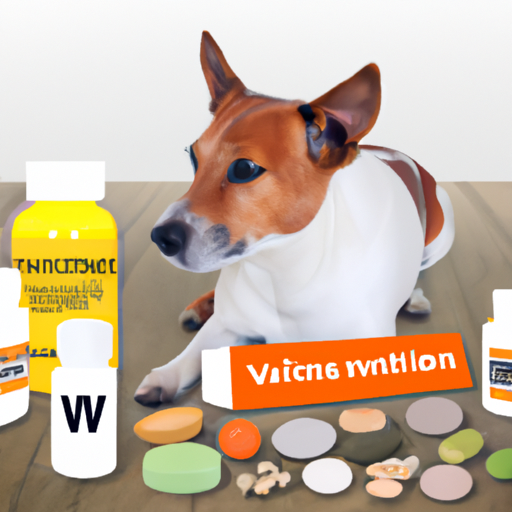As a dedicated caregiver to your furry friend, it’s your responsibility to make sure they’re getting the nutrients they need. But do you know which vitamins are essential for your dog’s health? This guide will tell you everything you need to know.
Vitamin A For Dogs
Your dog needs Vitamin A for a host of bodily functions. It helps with growth, fetal development, immune function, and the health of their skin and coat.
- Sources of Vitamin A: Animal liver, fish liver oil, green leafy vegetables, orange and yellow vegetables, and egg yolks.
- Symptoms of Vitamin A Deficiency: Weight loss, dull coat, night blindness, and a decreased ability to fight infections.
B Vitamins For Dogs
There are several types of B vitamins that your dog needs, including B1, B2, B3, B5, B6, B12, and folic acid. These vitamins are involved in energy production, brain function, and cell metabolism.
| B Vitamin | Sources | Symptoms of Deficiency |
|---|---|---|
| B1 (Thiamine) | Whole grains, yeast, and lean meats | Loss of appetite, seizures, and in severe cases, death |
| B2 (Riboflavin) | Dairy products, lean meats, and liver | Eye abnormalities, weakness, and weight loss |
| B3 (Niacin) | Meat, fish, and whole wheat | Loss of appetite, inflamed gums, and bloody diarrhea |
Vitamin C For Dogs
While dogs can produce Vitamin C in their bodies, certain conditions might require you to supplement this vitamin. It’s an antioxidant that helps protect the body against oxidative stress.
- Sources of Vitamin C: Red peppers, kiwi, strawberries, oranges, and Brussels sprouts.
- Symptoms of Vitamin C Deficiency: Joint pain, anemia, and scurvy.
Vitamin D For Dogs
Vitamin D is important for bone health and calcium and phosphate absorption. Unlike humans, dogs can’t make Vitamin D from the sun, so it’s crucial they get it from their diet.
- Sources of Vitamin D: Fish, beef liver, and egg yolks.
- Symptoms of Vitamin D Deficiency: Bone deformities, muscle weakness, and poor growth.
Vitamin E For Dogs
Vitamin E helps support the immune system, cell function, and skin health. It’s also an antioxidant, helping to protect the body from damaging free radicals.
- Sources of Vitamin E: Vegetable oils, green vegetables, and whole grains.
- Symptoms of Vitamin E Deficiency: Muscle weakness, loss of muscle mass, and impaired vision.
FAQs
1. Can I give my dog human vitamin supplements?
No, it’s not recommended. Human vitamins may contain excessive amounts that can be harmful to dogs.
2. How can I ensure my dog is getting enough vitamins?
A balanced diet is key. If you’re concerned, consult with your vet.
3. Should I give my dog vitamin supplements?
Not always necessary. If your dog eats a balanced diet, they should get the vitamins they need. However, certain conditions might require supplementation.
4. What are the symptoms of vitamin overdose in dogs?
Symptoms can vary but may include vomiting, diarrhea, and loss of appetite. If you suspect an overdose, contact your vet immediately.
Remember, as a caregiver, it’s your job to ensure your dog is healthy and happy. A balanced diet rich in essential vitamins is a great start.



